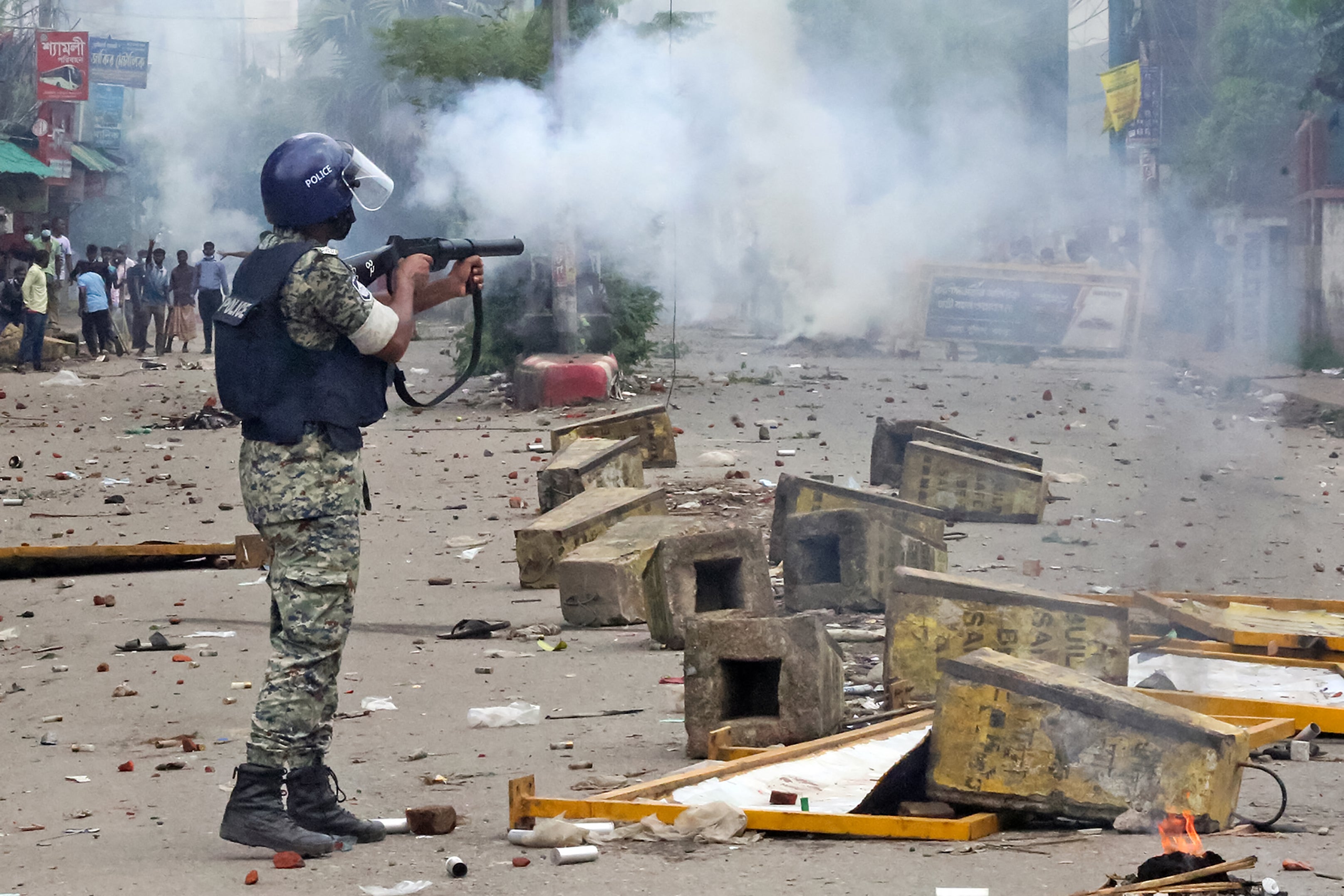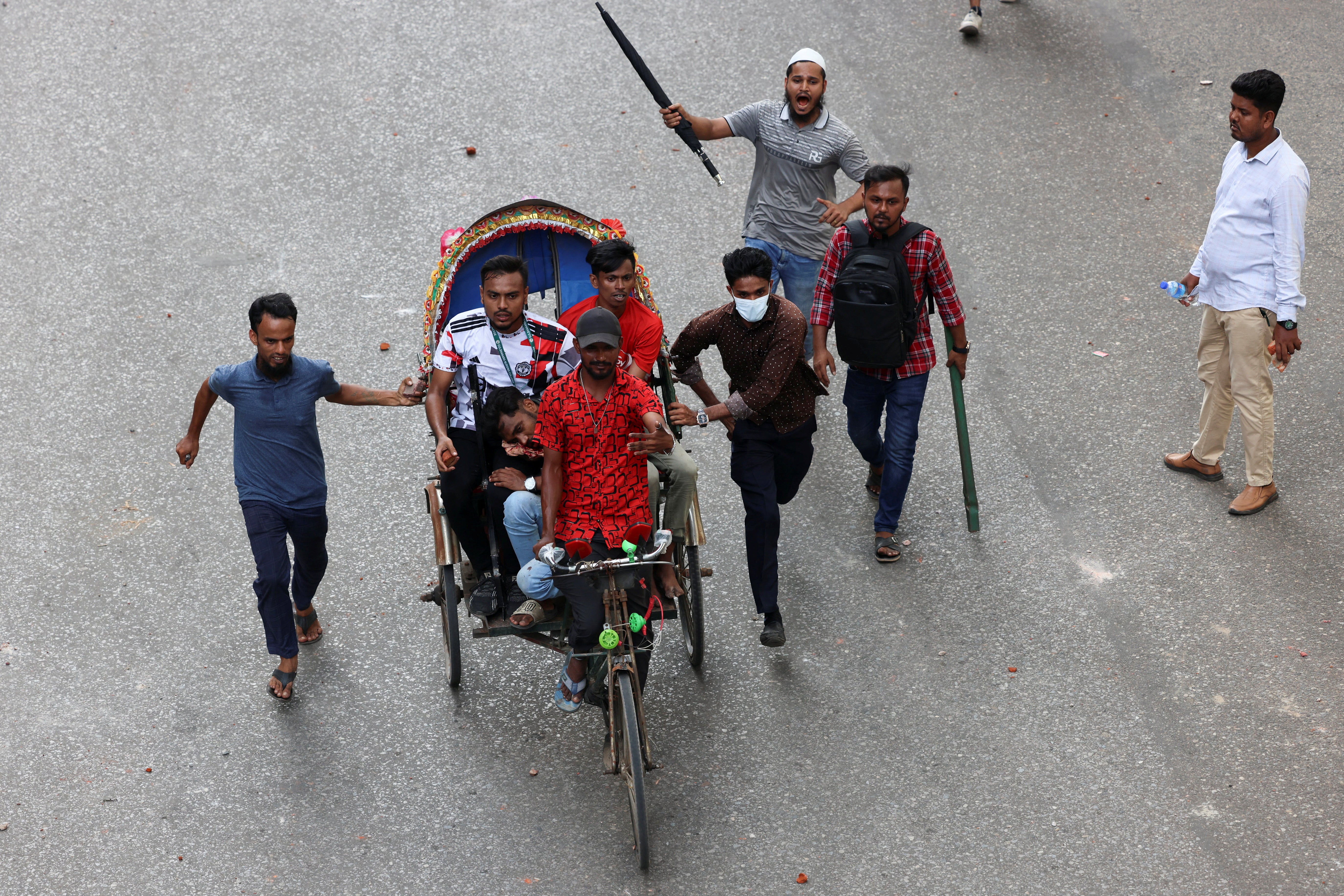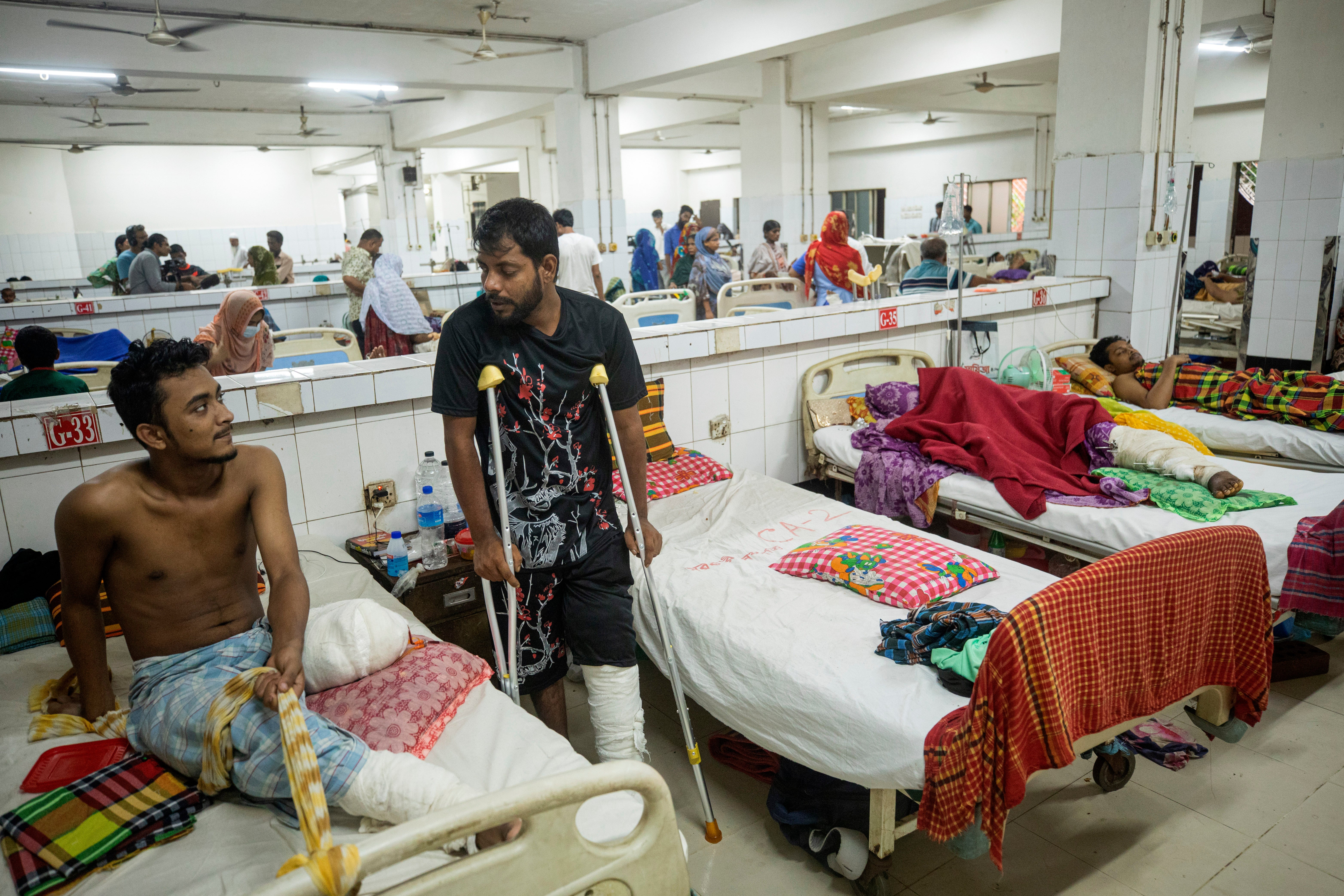Nearly 100 killed in deadliest day of Bangladesh violence yet as protesters call for Hasina to go
Student groups call for people to defy curfew and march peacefully to capital Dhaka on Monday
Your support helps us to tell the story
From reproductive rights to climate change to Big Tech, The Independent is on the ground when the story is developing. Whether it's investigating the financials of Elon Musk's pro-Trump PAC or producing our latest documentary, 'The A Word', which shines a light on the American women fighting for reproductive rights, we know how important it is to parse out the facts from the messaging.
At such a critical moment in US history, we need reporters on the ground. Your donation allows us to keep sending journalists to speak to both sides of the story.
The Independent is trusted by Americans across the entire political spectrum. And unlike many other quality news outlets, we choose not to lock Americans out of our reporting and analysis with paywalls. We believe quality journalism should be available to everyone, paid for by those who can afford it.
Your support makes all the difference.At least 95 people were killed and hundreds injured on Sunday in a police crackdown on protesters demanding the resignation of Bangladesh’s prime minister, marking the deadliest day of anti-government demonstrations which began in July.
In all more than 285 people have died during the protests against a quota system for government employment.
Fourteen of the 95 people killed in the latest round of violence were police personnel, Prothom Alo newspaper reported.
Anger over the quota system has now turned into a wider movement against the government, with protesters demanding the resignation of Sheikh Hasina and accountability for the deaths of demonstrators, most of them students, in the police crackdown.
Student groups leading the protests have called for a “Long March to Dhaka” on Monday and tens of thousands of people are expected to peacefully walk towards the capital, defying curfew.
“The government has killed many students. The time has come for the final answer,” protest coordinator Asif Mahmud said in a statement on Facebook late on Sunday.
“Everyone will come to Dhaka especially from the surrounding districts. Come to Dhaka and take a position on the streets.”
Maryam Aontika, one of the protesters marching to Dhaka on Monday, told The Independent: “Bangladesh is bleeding.”
“We are terrified to watch the so-called security providers, the army, shooting down innocent unarmed civilians in plain sight. There has been a brutal crackdown and total unrest.
“We demand the resignation of Sheikh Hasina, who is behind the deaths of hundreds of innocent students, the torture of detainees, and the anarchy in the country,” she said.
“We are headed towards a meeting point and then to the prime minister’s home, but the security forces are trying to stop us. We will not stop. More than 100 people have been killed by the police and her goons. We want to end this tyranny and her rule over the country.”
The government has announced a holiday Monday through Wednesday and cut off mobile internet services to contain the protests, while the military has imposed an indefinite curfew and deployed troops on the streets of the capital Dhaka and major cities.
Security forces have detained nearly 11,000 people, including opposition members and students, as of Monday.

Footage from Dhaka showed police and ruling party’s supporters firing live rounds at protesters. Police also fired rubber bullets and tear gas.
People were seen carrying wounded protesters on handpulled rickshaws and carts to hospitals where many arrived with rubber bullet injuries on their backs.
Protesters, meanwhile, targeted the Bangabandhu Sheikh Mujib Medical University, a top public hospital in Dhaka, ransacking the building and torching ambulances and other vehicles.
They also vandalised a prison van at the chief metropolitan magistrate’s court in Dhaka and set fire to some ruling party offices. Some carried sharp weapons and sticks, TV footage showed.

Protesters blocked a key highway in Uttara, Dhaka, attacked homes and vandalised a community welfare office where hundreds of ruling party activists had reportedly taken up positions.
Crude bombs were detonated and gunshots were heard in the area, witnesses said, and at least 20 people were hit by bullets.

In the northwestern Sirajganj district, protesters attacked a police station and reportedly killed about a dozen officers, the police headquarters in Dhaka said. One officer was also killed in the eastern Cumilla district.
Several former military leaders have expressed support for the student protesters. Former army chief General Karim Bhuiyan condemned the “egregious killings, torture, disappearances and mass arrests” and called on the government “to withdraw the armed forces from the street immediately”
Mirza Fakhrul Islam Alamgir, secretary general of the main opposition party, repeated a call for the government to step down to end the chaos.
Anisul Huq, law and justice minister, said the authorities are showing restraint.
“If we had not shown restraint, there would have been a bloodbath,” he told the BBC. “I guess our patience has limits.”

The ongoing protests are the most serious challenge yet to Ms Hasina’s 15-year grip on power. She was elected for a fourth straight term in a controversial election earlier this year that was boycotted by all major opposition parties.
The protests started as a demand to scrap a quota system that reserved 30 per cent of government jobs for the families of veterans who fought in Bangladesh’s war of independence against Pakistan in 1971.
As the protests turned violent, the Supreme Court scaled back the quota to 5 per cent. It ruled that 93 per cent of public sector jobs will be given on merit, and the remaining 2 per cent will be set aside for members of ethnic minorities and transgender and disabled people.
The government accepted the decision but protesters demanded an apology and accountability from the prime minister they blame for the deaths of protesters in the first round of demonstrations.
Ms Hasina’s government has blamed opposition parties and their student chapters for instigating the violence.

Join our commenting forum
Join thought-provoking conversations, follow other Independent readers and see their replies
Comments